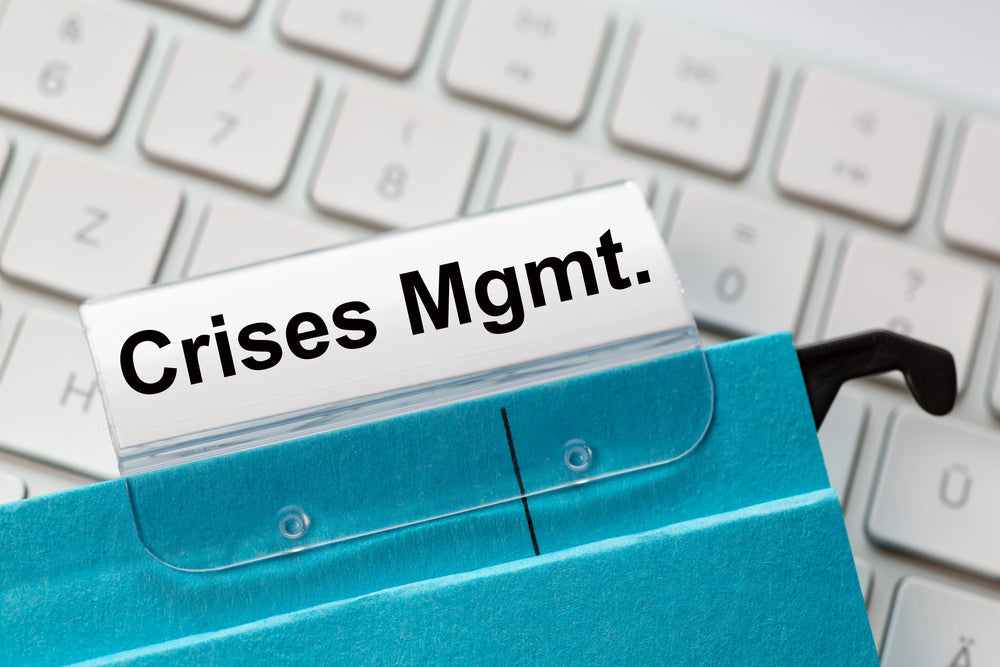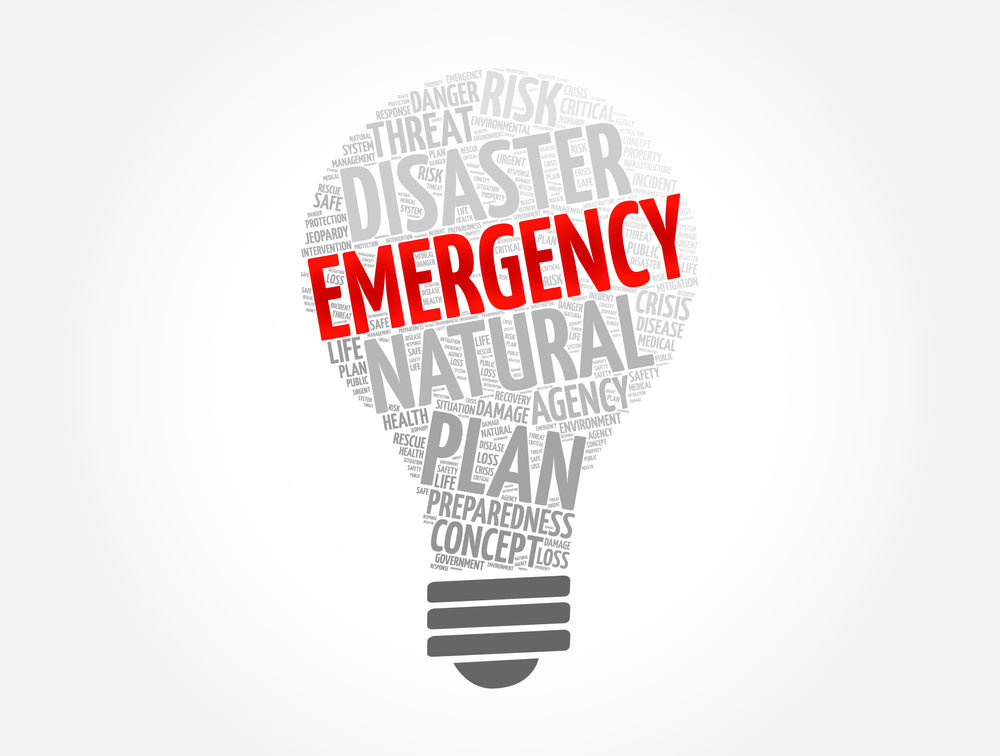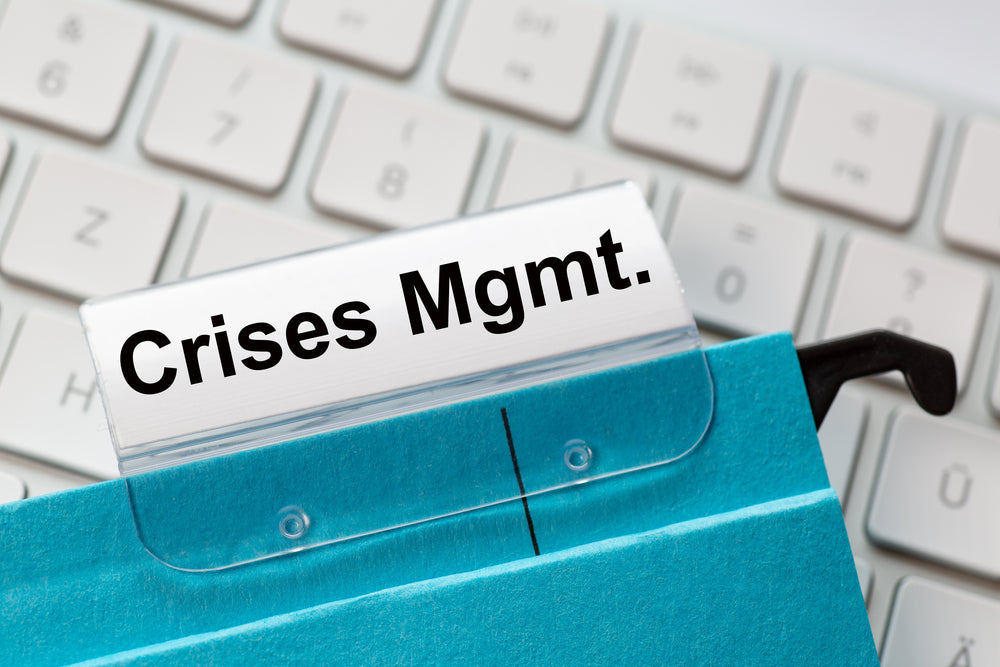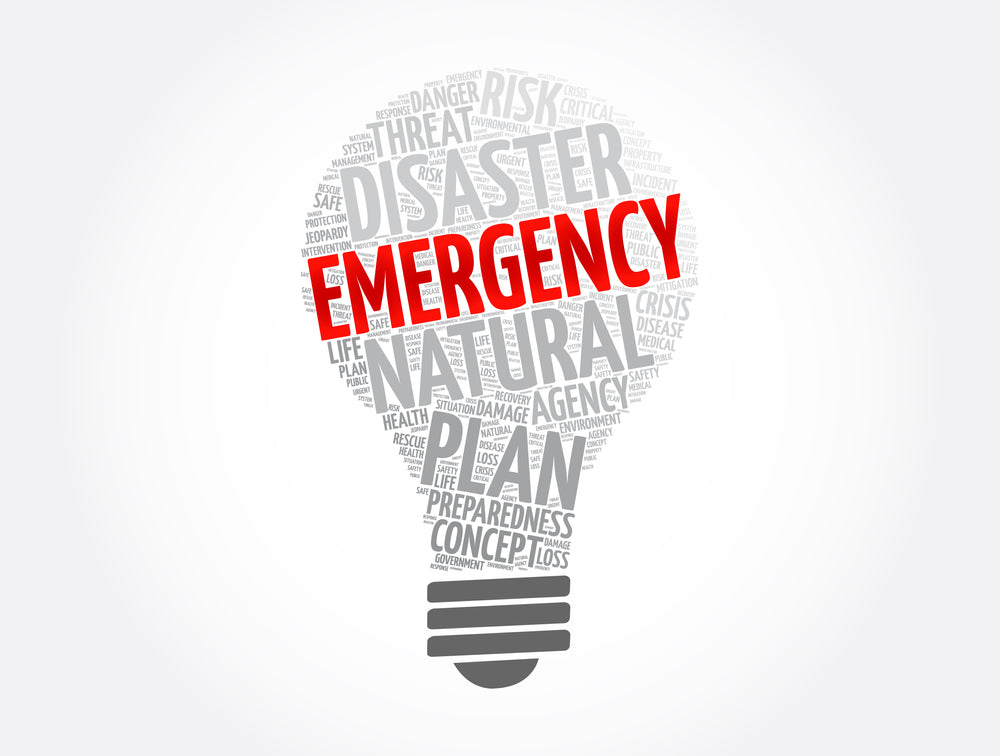Recognise and respond to crisis situations course online (based on CHCCCS019)

Recognise and respond to crisis situations course online (based on CHCCCS019)
Welcome to Recognise and respond to crisis situations course. This course has been designed to provide you with the knowledge and skills required to recognise situations where people may be in imminent crisis, and then to work collaboratively to minimise any safety concerns and make plans to access required support services. It applies to any community services worker involved in crisis intervention. Management of the crisis may involve face-to-face, telephone or remote contact with persons involved.
About this course
Training Provider: OHS.com.au with AlertForce (RTO Code 91826)
Location: Online
Course length: Approx. 4 hours (awareness version)
Time: Self-paced
Certification / Accreditation: Certificate of Completion*
CPD Points: Yes. 4 points as certificate of completion
Background - What is crisis?
A crisis refers to a very difficult or dangerous situation in which there is confusion, argument and suffering. A crisis is a time when a person's normal or usual daily activities are disrupted or are in distress. A crisis situation is not always a call to law enforcement. To be considered a crisis situation, a call must contain three elements:
- - This situation should be stressful
- - Intervention is possible at any time
- - There is a time when an individual has difficulty coping with the situation.
These three main characteristics are what distinguishes crisis from emergencies and problems. An emergency response can often be solved without intervention. Although the situation might seem to be a crisis, it can often be resolved without emergency personnel present. Emergencies can be sudden and require immediate medical attention or law enforcement. It is difficult to intervene quickly and it is rare that the person involved has been able to cope with the situation before. Crisis can occur at any time and every situation is different, so it is important to be flexible in your management and response.
Response personnel may be faced with crisis situations for many reasons. There are many types of crisis situations that can be considered to meet these three criteria. The process of responding to these situations will vary depending on the circumstances. Family crises and other life-threatening events such as suicides, natural disasters and financial disruptions are just a few of the many types of crisis that enforcement professionals need to respond to.
Aims and Objectives of this course
This course Recognise and respond to crisis situations (based on CHCCCS019) will help you earn the skills necessary to recognise and respond to signs indicating that there may be safety issues for people and consider indicators from direct and indirect communications that suggest the presence of safety issues.Our Recognise and respond to crisis situations course is based on the unit of competency of CHCCCS019. Whilst this course is not nationally recognised, it follows the learning outcomes and elements associated with that unit. The course contains1. Narrated e-learning learning resources online2. Online Assessment tasks 3. Ability to download your Certificate of Completion once assessment tasks are completed
What will you learn by completing the training course?
This course will include an understanding of awareness of the relevant legislation and your responsibilities in recognising and responding to crisis situations.Learning outcomes include:
- Listen empathetically to details of current crisis situation
- Affirm and strengthen links to safety and living
- Provide structure and strategies for dealing with the immediate crisis through enabling thoughts and behaviours
- Balance collaboration and direction according to the person’s current capacity for decision-making and coping
- Identify and agree actions to reduce immediate danger and risk to others, including mobilisation of emergency assistance as required
- Confirm that actions are legal, ethical, consistent with organisation policy and meet duty of care requirements
- Seek advice or assistance from supervisor as required
How Is the Training Delivered?
Recognise and respond to crisis situations course is available online and completed in your own time. This Recognise and respond to crisis situations training course is based on the learning outcomes outlined above.The course is typically designed to be completed in a minimum of four hours.However, the exact length of the course may depend on your ability and prior knowledge around the subject. As the training is delivered online, you are able to complete it at your own pace.
What Accreditation Will You Get?
After completing the Recognise and respond to crisis situations course, an assessment is conducted to determine if you have understood the information presented during the training course. If you pass this assessment, you receive a Certificate of Completion.
IMPORTANT NOTE whilst this course is based on the learning outcomes of the course provided, it is important to note that it is not a Nationally Recognised Statement of Attainment unless you opt for that option. Nationally Recognised training is only really required If you specifically require that unit of competency for a qualification or licence (typically this will require a practical component, further assessment and increased costs).
Is the course tax deductible?
Whilst you should get advice from your financial advisor to confirm, generally speaking further training and education related to advancing your career is 100% tax deductible.
Approx. run time: 4 hours
SKU:
Course Highlights:
- On-demand Training
- Complete on Any Device
- Quality Focused
- Fast Certification
- Tax Deductable
- 100% Online
- 24 Months Unlimited Course Access
- Self-print Certificate
Couldn't load pickup availability

"Well run course! The trainer was very efficient, well prepared, communicated clearly what we would cover and finished on time 👍"
Nathan"Good customer service great knowledge and understanding from the trainers couldn’t recommend a better place to be trained"
Melanie"The course was very informative. Going into the course I didn’t think I’d learn anything new but I was astonished with how much I learnt."
Paul.P"This course was Informative and practical shout out to John for leading the session."
JayADDITIONAL EXTRA BONUSES with OHS.com.au
Claim up to $1271.95 worth of Extra Bonuses
with every purchase
- Your personal copy of Safety Legends E-Book (value $39.95)
- $100 off your first case from Naked Wines (value $100)
- Upto 350,000 Bonus AMEX Frequent Flyer points* (value $1000)
- Complimentary Access to two online courses** (value $132)
$1271.95 EXTRA VALUE - JUST FOR YOU INSIDE!
* New customers when you successfully sign up for a new personal / business credit card ** Indigenous Cultural Awareness / Impacts of Climate Change coursesDescription
Welcome to Recognise and respond to crisis situations course. This course has been designed to provide you with the knowledge and skills required to recognise situations where people may be in imminent crisis, and then to work collaboratively to minimise any safety concerns and make plans to access required support services. It applies to any community services worker involved in crisis intervention. Management of the crisis may involve face-to-face, telephone or remote contact with persons involved.
About this course
Training Provider: OHS.com.au with AlertForce (RTO Code 91826)
Location: Online
Course length: Approx. 4 hours (awareness version)
Time: Self-paced
Certification / Accreditation: Certificate of Completion*
CPD Points: Yes. 4 points as certificate of completion
Background - What is crisis?
A crisis refers to a very difficult or dangerous situation in which there is confusion, argument and suffering. A crisis is a time when a person's normal or usual daily activities are disrupted or are in distress. A crisis situation is not always a call to law enforcement. To be considered a crisis situation, a call must contain three elements:
- - This situation should be stressful
- - Intervention is possible at any time
- - There is a time when an individual has difficulty coping with the situation.
These three main characteristics are what distinguishes crisis from emergencies and problems. An emergency response can often be solved without intervention. Although the situation might seem to be a crisis, it can often be resolved without emergency personnel present. Emergencies can be sudden and require immediate medical attention or law enforcement. It is difficult to intervene quickly and it is rare that the person involved has been able to cope with the situation before. Crisis can occur at any time and every situation is different, so it is important to be flexible in your management and response.
Response personnel may be faced with crisis situations for many reasons. There are many types of crisis situations that can be considered to meet these three criteria. The process of responding to these situations will vary depending on the circumstances. Family crises and other life-threatening events such as suicides, natural disasters and financial disruptions are just a few of the many types of crisis that enforcement professionals need to respond to.
Aims and Objectives of this course
This course Recognise and respond to crisis situations (based on CHCCCS019) will help you earn the skills necessary to recognise and respond to signs indicating that there may be safety issues for people and consider indicators from direct and indirect communications that suggest the presence of safety issues.Our Recognise and respond to crisis situations course is based on the unit of competency of CHCCCS019. Whilst this course is not nationally recognised, it follows the learning outcomes and elements associated with that unit. The course contains1. Narrated e-learning learning resources online2. Online Assessment tasks 3. Ability to download your Certificate of Completion once assessment tasks are completed
What will you learn by completing the training course?
This course will include an understanding of awareness of the relevant legislation and your responsibilities in recognising and responding to crisis situations.Learning outcomes include:
- Listen empathetically to details of current crisis situation
- Affirm and strengthen links to safety and living
- Provide structure and strategies for dealing with the immediate crisis through enabling thoughts and behaviours
- Balance collaboration and direction according to the person’s current capacity for decision-making and coping
- Identify and agree actions to reduce immediate danger and risk to others, including mobilisation of emergency assistance as required
- Confirm that actions are legal, ethical, consistent with organisation policy and meet duty of care requirements
- Seek advice or assistance from supervisor as required
How Is the Training Delivered?
Recognise and respond to crisis situations course is available online and completed in your own time. This Recognise and respond to crisis situations training course is based on the learning outcomes outlined above.The course is typically designed to be completed in a minimum of four hours.However, the exact length of the course may depend on your ability and prior knowledge around the subject. As the training is delivered online, you are able to complete it at your own pace.
What Accreditation Will You Get?
After completing the Recognise and respond to crisis situations course, an assessment is conducted to determine if you have understood the information presented during the training course. If you pass this assessment, you receive a Certificate of Completion.
IMPORTANT NOTE whilst this course is based on the learning outcomes of the course provided, it is important to note that it is not a Nationally Recognised Statement of Attainment unless you opt for that option. Nationally Recognised training is only really required If you specifically require that unit of competency for a qualification or licence (typically this will require a practical component, further assessment and increased costs).
Is the course tax deductible?
Whilst you should get advice from your financial advisor to confirm, generally speaking further training and education related to advancing your career is 100% tax deductible.
Approx. run time: 4 hours
- Money Back Guarantee
- Save Time & Money
- Tax Deductible
- 1000's Trained Each Month
- Quality-Focused
- Peer Reviewed Courses
- Trusted Industry Partner
- Fast Certification
- 60 Day Guarantee
- *See refund policy


Got multiple people needing to do a course? We will get back to you within a day!
Student Reviews

Couldn't load pickup availability

Contact Us!
Contact form
ADDITIONAL EXTRA BONUSES with OHS.com.au
Claim up to $1271.95 worth of Extra Bonuses
with every purchase
- Your personal copy of Safety Legends E-Book (value $39.95)
- $100 off your first case from Naked Wines (value $100)
- Upto 350,000 Bonus AMEX Frequent Flyer points* (value $1000)
- Complimentary Access to two online courses** (value $132)
$1271.95 EXTRA VALUE - JUST FOR YOU INSIDE!
* New customers when you successfully sign up for a new personal / business credit card ** Indigenous Cultural Awareness / Impacts of Climate Change coursesDescription
Welcome to Recognise and respond to crisis situations course. This course has been designed to provide you with the knowledge and skills required to recognise situations where people may be in imminent crisis, and then to work collaboratively to minimise any safety concerns and make plans to access required support services. It applies to any community services worker involved in crisis intervention. Management of the crisis may involve face-to-face, telephone or remote contact with persons involved.
About this course
Training Provider: OHS.com.au with AlertForce (RTO Code 91826)
Location: Online
Course length: Approx. 4 hours (awareness version)
Time: Self-paced
Certification / Accreditation: Certificate of Completion*
CPD Points: Yes. 4 points as certificate of completion
Background - What is crisis?
A crisis refers to a very difficult or dangerous situation in which there is confusion, argument and suffering. A crisis is a time when a person's normal or usual daily activities are disrupted or are in distress. A crisis situation is not always a call to law enforcement. To be considered a crisis situation, a call must contain three elements:
- - This situation should be stressful
- - Intervention is possible at any time
- - There is a time when an individual has difficulty coping with the situation.
These three main characteristics are what distinguishes crisis from emergencies and problems. An emergency response can often be solved without intervention. Although the situation might seem to be a crisis, it can often be resolved without emergency personnel present. Emergencies can be sudden and require immediate medical attention or law enforcement. It is difficult to intervene quickly and it is rare that the person involved has been able to cope with the situation before. Crisis can occur at any time and every situation is different, so it is important to be flexible in your management and response.
Response personnel may be faced with crisis situations for many reasons. There are many types of crisis situations that can be considered to meet these three criteria. The process of responding to these situations will vary depending on the circumstances. Family crises and other life-threatening events such as suicides, natural disasters and financial disruptions are just a few of the many types of crisis that enforcement professionals need to respond to.
Aims and Objectives of this course
This course Recognise and respond to crisis situations (based on CHCCCS019) will help you earn the skills necessary to recognise and respond to signs indicating that there may be safety issues for people and consider indicators from direct and indirect communications that suggest the presence of safety issues.Our Recognise and respond to crisis situations course is based on the unit of competency of CHCCCS019. Whilst this course is not nationally recognised, it follows the learning outcomes and elements associated with that unit. The course contains1. Narrated e-learning learning resources online2. Online Assessment tasks 3. Ability to download your Certificate of Completion once assessment tasks are completed
What will you learn by completing the training course?
This course will include an understanding of awareness of the relevant legislation and your responsibilities in recognising and responding to crisis situations.Learning outcomes include:
- Listen empathetically to details of current crisis situation
- Affirm and strengthen links to safety and living
- Provide structure and strategies for dealing with the immediate crisis through enabling thoughts and behaviours
- Balance collaboration and direction according to the person’s current capacity for decision-making and coping
- Identify and agree actions to reduce immediate danger and risk to others, including mobilisation of emergency assistance as required
- Confirm that actions are legal, ethical, consistent with organisation policy and meet duty of care requirements
- Seek advice or assistance from supervisor as required
How Is the Training Delivered?
Recognise and respond to crisis situations course is available online and completed in your own time. This Recognise and respond to crisis situations training course is based on the learning outcomes outlined above.The course is typically designed to be completed in a minimum of four hours.However, the exact length of the course may depend on your ability and prior knowledge around the subject. As the training is delivered online, you are able to complete it at your own pace.
What Accreditation Will You Get?
After completing the Recognise and respond to crisis situations course, an assessment is conducted to determine if you have understood the information presented during the training course. If you pass this assessment, you receive a Certificate of Completion.
IMPORTANT NOTE whilst this course is based on the learning outcomes of the course provided, it is important to note that it is not a Nationally Recognised Statement of Attainment unless you opt for that option. Nationally Recognised training is only really required If you specifically require that unit of competency for a qualification or licence (typically this will require a practical component, further assessment and increased costs).
Is the course tax deductible?
Whilst you should get advice from your financial advisor to confirm, generally speaking further training and education related to advancing your career is 100% tax deductible.
Approx. run time: 4 hours
- Money Back Guarantee
- Save Time & Money
- Tax Deductible
- 1000's Trained Each Month
- Quality-Focused
- Peer Reviewed Courses
- Trusted Industry Partner
- Fast Certification
- 60 Day Guarantee
- *See refund policy
Student Reviews

Course Highlights:
- On-demand Training
- Complete on Any Device
- Quality Focused
- Fast Certification
- Tax Deductable
- 100% Online
- 24 Months Unlimited Course Access
- Self-print Certificate
Couldn't load pickup availability

"Well run course! The trainer was very efficient, well prepared, communicated clearly what we would cover and finished on time 👍"
Nathan"Good customer service great knowledge and understanding from the trainers couldn’t recommend a better place to be trained"
Melanie"The course was very informative. Going into the course I didn’t think I’d learn anything new but I was astonished with how much I learnt."
Paul.P"This course was Informative and practical shout out to John for leading the session."
Jay



Are you from a large organisation? Contact us for a group quote!
 Checkout securely with
Checkout securely with
Since 1999, OHS has been operating in the training industry, offering trusted online health and safety courses that bring practical solutions to a field where vocational education is often underappreciated. Our training programs are designed to be accessible and cost-effective, making it easy for those needing to refresh their knowledge to do so without having to sacrifice so much time.
OHS supports your professional development journey by offering a variety of courses, including NDIS Training, Safety Training, Staff Training and VOCs/High Risk Refreshers, each tailored to be cost-effective and flexible. There's no need to keep looking up 'First Aid Training Warrnambool', 'First Aid Training Mildura' or 'Fall Awareness Training Brisbane' - we can ensure that quality training is within reach.
With OHS, you can choose between buying individual courses or an annual subscription for unlimited access to our extensive training modules that are ideal for your professional development goals. So, instead of searching for '10675nat', 'ndis manual handling' or 'high risk work licence', reach out to us today to discuss your options and find the right course for you.
 1300 307 445
1300 307 445



 Download Course PDF Here
Download Course PDF Here